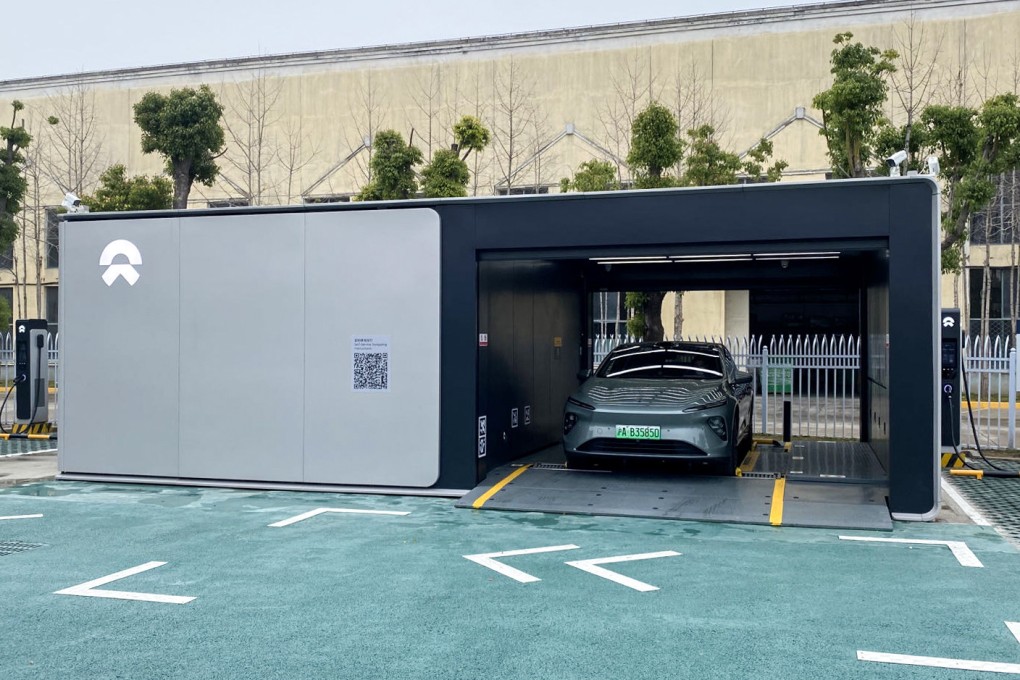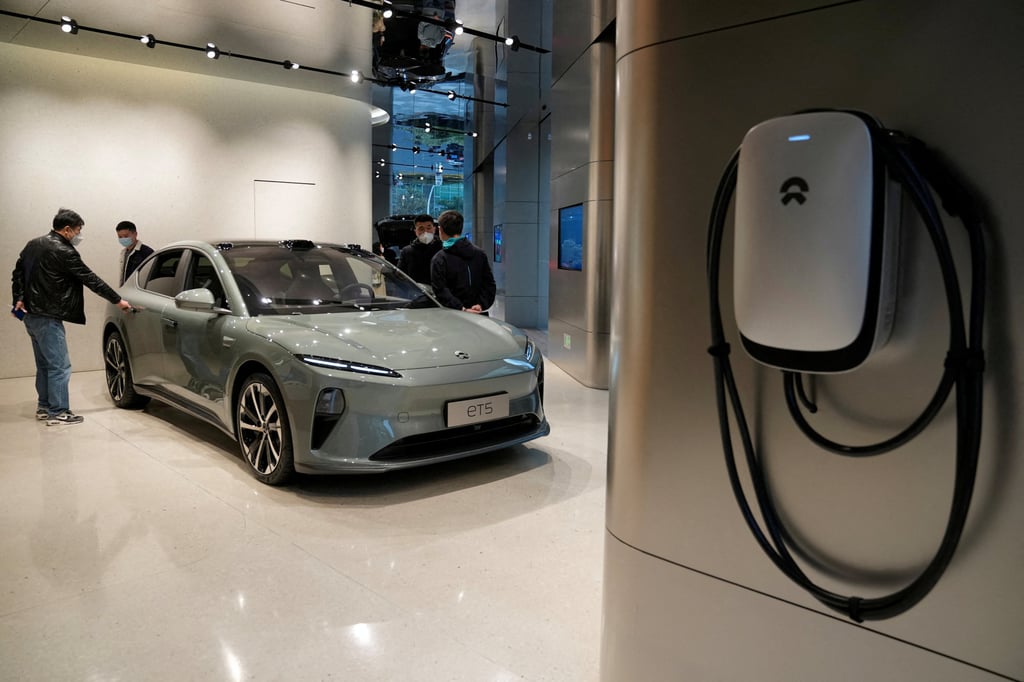Chinese EV maker Nio aims to woo more buyers with 1,000 new battery-swap stations as it prepares for launch of budget cars
- Company doubles down on model that allows drivers to change – rather than charge – their electric-vehicle’s battery pack
- The new stations can handle 30 per cent more swaps per day than the previous design, using technology that navigates the car into the proper position

Nio already operates about 1,300 swap stations in China, which allow Nio owners to quickly exchange a spent battery pack for a fully charged one. The stations serve owners who opt for Nio’s battery-as-a-service (BaaS) option, which slashes the initial price of buying the car but charges a monthly fee for the battery and service.
The new stations can swap 408 battery packs a day, 30 per cent more than the existing stations, because they feature technology that automatically navigates the car into the proper position, the company said. The swap takes about three minutes.
The aggressive buildout of new stations aims to ease EV drivers’ so-called range anxiety, the fear of the battery running out between charging stations, said Shen Fei, vice-president of Nio Power, the power-solution unit of Shanghai-based Nio.

“We hope to largely expand our service and network and bring better user experience to car owners,” Shen said. “Nio, as a pioneer of the battery-swap model, welcomes other carmakers to share the technology and network.”